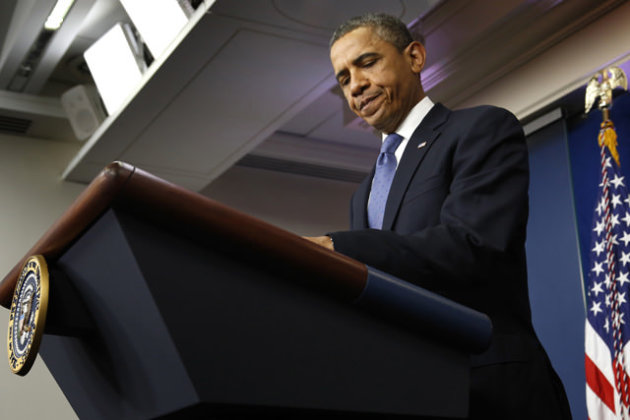I remember it still — people flipped out about the Nintendo (NTDOY) Wii. Yes, its name was mocked for a while, but there was genuine excitement around what Nintendo was doing with motion and the entire gameplay experience. While the original Nintendo Wii was almost an Apple (AAPL)-like product — Nintendo focused on the gameplay and not on specs; the company didn’t even have HD graphics when every other console did — the Nintendo Wii U clearly demonstrates how far Nintendo has fallen and how out of touch the company is.
[More from BGR: Samsung could face $ 15 billion fine for trying to ban iPhone, other Apple devices]
I bought a Nintendo Wii U for one reason and one reason only, and that’s to play and beat “Super Mario Bros. U.” I’ll probably end up returning the console after I’m done, because that’s how horrible the Wii U actually is.
[More from BGR: Five-year-old finds porn on refurbished Nintendo 3DS from GameStop]
First of all, the fact that Nintendo actually decided to ship this joke of a controller called the GamePad with a 6.2-inch touchscreen in the middle says it all. It only lasted for around two hours per charge over the week I’ve used it, and it’s big, clunky and made of glossy Nintendo plastic. The problem it, it has no charm. It feels thrown together to try to make a statement, one that says that Nintendo isn’t afraid of the iPads or Android tablets or iPhones or iPod touches, and that it too can take on touch just as it took on motion.
It fails miserably. And that’s just the controller.
The actual console is one that finally for the first time ever supports HDMI and HD graphics, yet Nintendo’s flagship game doesn’t look good in high-definition. The console’s UI is a mess, and let’s be honest, we are living in a time where we are so connected, where so much is shared across continents instantly, that real design transcends what country it was designed in.
When you see a beautiful iPhone app’s interface, there’s a good chance you couldn’t tell if it was designed by a company in San Francisco or Paris or Hong Kong. But Nintendo’s interface is blatantly Japanese, and it lacks any and all sophistication. It’s like all of Nintendo’s designers just gave up and are living in a time when Apple’s iOS devices and Google’s (GOOG) Android devices don’t exist, blissfully ignoring the threat that their company is facing from all angles.
The Wii U experience is so terrible that it took over an hour to update the software on the console recently, and apparently that wasn’t that bad. People have told me their updates took over 4 hours when performed closer to Christmas. Do you know what that 7-year-old is doing during those 4 hours you’re making him wait? Playing Temple Run or Angry Birds on his iPad mini. Way to go Nintendo.
I’ll go on record and say that I think this is the last video game console Nintendo will make for the home. I just don’t see the future here with hardware. Not by a mile.
Nintendo needs to realize that hardware is hardware and that Nintendo’s hardware isn’t special, it isn’t elegant and it isn’t thoughtful. It’s merely a delivery mechanism in a time where design has never been more important.
Nintendo is a great company, one that has invented so many great products, but sooner or later it will be forced to offer its titles on iOS devices and Android devices. It’s going to get to that point. There’s way too much revenue to be made — Nintendo isn’t Sega, and Sega is crushing it as a software-only company.
I just hope Nintendo follows suit sooner or later, because I have $ 9.99 ready to go for the Super Mario app on iOS.
This article was originally published by BGR
Gaming News Headlines – Yahoo! News
Title Post: The Boy Genius Report: The Wii U is Nintendo’s last console
Rating:
100%
based on 99998 ratings.
5 user reviews.
Author:
Thanks for visiting the blog, If any criticism and suggestions please leave a comment



